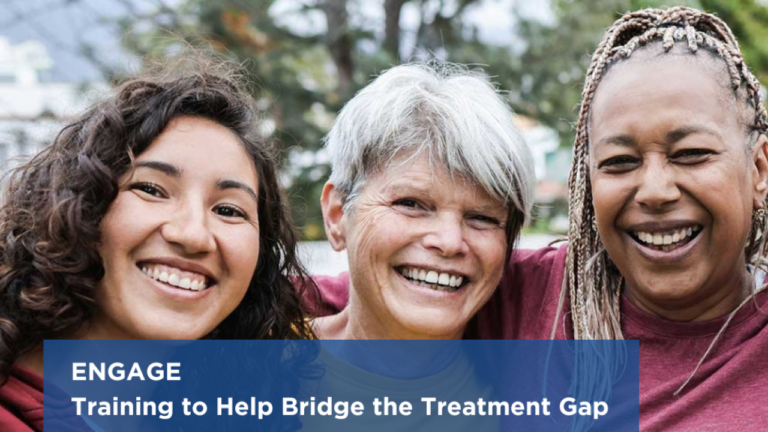A new bill introduced in the U.S. House of Representatives aims to address the country’s severe mental health provider shortage by expanding access to behavioral health services in underserved communities and creating employment and career pathways for community members.
The Community Mental Wellness Worker Training Act, introduced on June 11 by Rep. Adriano Espaillat (NY-13) and Rep. Mike Lawler (NY-17), would create a federal grant program to enable certified community behavioral health clinics, mental health centers, hospitals, and other behavioral health organizations to train ordinary community members to conduct behavioral health screenings and interventions.
“Communities across the country are facing a mental health tsunami, and our bill will address the national crisis at hand while specifically training and supporting local health care workers who are culturally competent and contextualized to best serve their neighbors,” said Rep. Espaillat, who has long advocated for underserved populations with her medical and mental health training.
The need for quality, culturally appropriate care
A quarter of the U.S. population is in urgent need of accessible, culturally competent behavioral health services. “More than one in five Americans suffer from a mental illness, nearly one in ten suffer from depression annually, and more than 16% have struggled with substance abuse in the past year,” said Rep. Lawler. “As the mental health crisis and addiction epidemic grows, the need for mental health workers has never been greater.”
Milton Weinberg, MD, professor of clinical psychiatry at Columbia University Vagelos College of Physicians and Surgeons and New York State Psychiatric Institute and director of the Mental Wellness Equity Center, praised the bill. “By training lay health care workers to provide ready access to quality mental health care under the supervision of a mental health professional, this legislation is an important step toward addressing the urgent challenges we face of mental health and substance use inequities and access to services,” said Dr. Weinberg, who co-directs the center with Miriam Tepper, MD, assistant professor of psychiatry at Columbia University.
Columbia University’s ENGAGE Initiative
In 2022, Dr. Weinberg and Dr. Tepper launched ENGAGE, a signature initiative of the Columbia Mental Wellness Equity Center, to train lay community workers to deliver brief interventions for mental illness and addiction.
The initiative is designed to improve access to behavioral health care for ethnic and racial minorities, socially and economically disadvantaged people, and sexual and gender minorities, and has received pilot funding from the New York State Department of Mental Health, in addition to federal Community Project Start-Up funding supported by Congressman Espaillat.
Since then, ENGAGE has trained supervised lay providers across multiple agencies to screen for mental health and substance use conditions, deliver brief, evidence-based interventions, and connect individuals to resources to improve their economic situations.
“Expanding culturally and linguistically sensitive mental health resources will help reduce the stigma that communities, especially minority communities, face when addressing their mental health and getting the support individuals need,” said Rep. Espaillat. “Our bill creates a framework to remove barriers that have long prevented marginalized communities from seeking mental health services and provides federal grant funding to ensure these services are provided when needed.”
—————————————————————–
The following organizations support Espaillat-Lawr’s bill: American Foundation for Suicide Prevention, American Association of Mental Health Counselors, Anxiety and Depression Association of America, American Association of Clinical Social Work Psychoanalysis, American Occupational Therapy Association, Alliance for Children and Adults with Attention Deficit Hyperactivity Disorder, Depression and Bipolar Disorder, Global Alliance for Behavioral Health and Social Justice, Huntington’s Disease Association, International Association of Psychiatric and Mental Health Nurses, Meadows Institute for Mental Health Policy, National Association of State Mental Health Program Directors, National Alliance on Mental Illness, National Pediatric Nurses Association, National Council on Mental Health, National Disability Rights Network, National League for Nurses, Psychotherapy Action Network, Kennedy Forum, Western Youth Services, and Postpartum Support International.
To see the official support letter, here.


